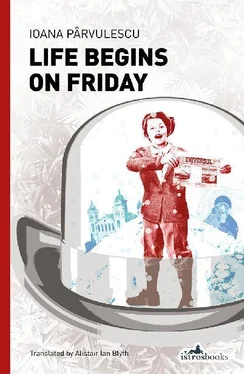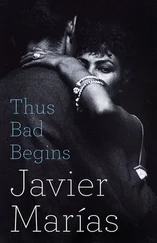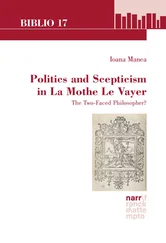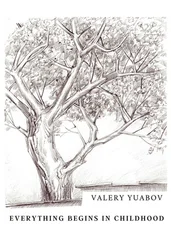In the afternoon, the fog lifted for a few hours and it was possible to see the smoke from the chimneys. The smoke was not as straight as a candle, as it was on fine days, but hunchbacked and humble, trembling, as if hesitating to go on its way and unravelling into slenderer and slenderer threads. At around four o’clock in the afternoon, the fog engulfed the smoke that had lain hidden in it, and in the evening the darkness engulfed both. Beneath the white and black waves, the top of the L’Indépendance Roumaine building disappeared. Inside, the editors talked endlessly about their erstwhile director, hoping with all their hearts that Nicu Filipescu would go to prison.
*
The rather ordinary-looking Adevĕrul building on Strada Sărindar also disappeared. Inside, a brand new attack against the monarchy was being hatched. The baroque building of the Universul popular newspaper also disappeared, a building atop which two almost naked bodies joined their winged shoulders, right above the window of the director’s office. Thence, one by one, Mr Peppin Mirto and Mr Dan Crețu emerged into the whitish murk, each heading in the direction of Theatre Square to take a cab. Then, from the last office on the left, as you look at the front of the building, editor-in-chief Neculai Procopiu came out, later followed by Pavel Mirto, after he had finished writing a few more pages of his book. Old man Cercel was the last to leave, after checking that none of the lights in any of the offices had been left burning. Although there was no longer any danger of a fire, the doorman did his duty the same as he had in the old days, in his youth, when any candle could turn Bucharest’s buildings into torches. And besides, electricity was expensive, and Mr Cazzvillan has asked him not to leave any of the lights on. The fog enveloped him, as he headed towards his little house on Strada Vișinelor in a carriage whose side was inscribed UNIVERSUL in white letters.
Sunday, 28 December: Press Review
I am writing in bed, propping the diary against my knees, and so my handwriting is bad. I feel sleepy and spoiled and worried, and my thoughts are all in a muddle. I yearn. Last night I dreamed no more no less than I was in the Garden of Eden, it looked a little like the garden of our old house, the one they sold when my Grandfather died. I pass a cherry plum tree, which did not tempt me, and then I came to an apple tree. In the tree I saw a small golden fruit and I gobbled it up without a second thought. Then I saw another, larger, greener apple, and I gobbled that one up too. It was not until I woke up that I thought of Eve. Am I to understand from this that I am guilty for tempting Adam? But what guilt? Perhaps because I was not wearing a corset? What can be bad in good? What can be bad in us? Proof that it is not a bad thing is that the body knows very well what it has to do. ‘A little bad in you.’ It is true that he guided me with a gentleness I would not have suspected in him. Our bodies are made to understand, while our words are made to separate us, because on leaving he said to me reproachfully: ‘Why did I have to see you asleep?’ Incomprehensible words that seemed to be brutal, like a blow. Naturally I was not asleep!
It was still well, but then today I picked up Universul (after Papa reads it, it arrives in my room, since Mama cannot abide it, she says it lacks style) and the devil knows what prompted me, or the devil himself prompted me, to read the letters of Dr Bastaki to Miss Gorjan, the woman who, after two years of amour , shot her lover with a pistol, because of blighted happiness. Those letters are dreadful. It is worth transcribing two of them here, so that I might be warned, having picked the golden apple from the tree of the knowledge of good and evil. In the summer, in August, he wrote to her thus: ‘ My darling love , I have read the letter I received from you this morning and I am still under the influence of a pang of the heart. It is certain that your parents seek only to drive you away from me and employ to that end means that are in keeping with them, means dastardly and unscrupulous. What concern about you grips them, when they speak ill of a man who enjoys the esteem of the whole of society?’ Look how modest he is! At least it is not the case with Alexandru. And nor with my parents. But what follows is even more outré : ‘In order to do so, they ought to have qualities of a higher order, whereas with them it is completely the opposite.’ I have said that Miss Elena’s father is a general. ‘What did they wish to do with their daughter? To marry her off for money?! Therefore they wished to invest you like capital. The question of money trumps all others. Little do they care about quality and intelligence, these to them are a negligible quantity. Well, for people who think only of money, they do not judge badly. Of course, they must now be furious seeing their hopes dashed, their investment lost. That noble body, that palpitating flesh has managed to escape their infamous trafficking and they cannot forgive such an act of independence, the rebellion of a sincere and honest nature. I read and reread your letter and I rage with shame and fury at the very idea that you can be their daughter. You do not deserve to stay one minute in the presence of such people, and this is why I beg you to leave at once that horrible place and come to me. I shall arrange things in such a way as to make you happy. I love you and I want you for the rest of my life.’ Less than a year later, in June, the married man from Brăila wrote a letter such as I have never read before — and I am widely read: ‘ Dear friend , This morning I am on the bank of the Danube that threatens us; I have so many things to do that I do not know where to start. My solutions have gone to hell. You did badly to leave Bucharest. In this moment I want to go to the dykes, which we are struggling to keep in place. I cannot leave here and think of anything but the danger that threatens the Lake. It is impossible for me to come to town. What will you do in Brăila? Am I not to be left in peace? Neither the lady nor any other person in the world concerns me at the moment. I think of nothing except what is happening here. Are you determined whatever the cost to compete with the Danube? It is true: you too burst your banks. I am furious to discover that you are in town. I embrace you etc.’
I particularly liked that ‘Am I not to be left in peace?’ and even more so the declaration of love: ‘Are you determined to compete with the Danube?’ And the final ‘I embrace you.’ Perhaps I would have lost my mind too, who knows? But I find the unanimously reviled Mr Bastaki rather likeable, he has something of a character from Vanity Fair and I think his fury was genuine and probably justified to a certain extent. But what would I have done in Miss Gorjan’s place and in the same circumstances? Anyway, I do not have a revolver. Although to use his words, now that I have seen what a man is capable of, ‘I am under the influence of a pang of the heart.’ Outside there is a blizzard, the errand boys are certainly not on duty, and so I cannot hope for any sign. Now my mind keeps coming back to the ‘palpitating flesh’ of yesterday evening. For decency’s sake, I cannot set down in this notebook what I am thinking.
‘‘People are crying out because not all our roads are paved, because three quarters of the streets do not have drains, because we do not have electric lighting except on the main thoroughfares, because we drop like flies when there are outbreaks of disease. And Mayor Robescu has saved up money in his stocking and proposes to erect statues for us: the statue of Independence and the bust of Ioan Brătianu. When we ask for improvements, there is no cash. When there is cash, they erect statues! Bucharest is burning and the mayor is fiddling!’’
Читать дальше












